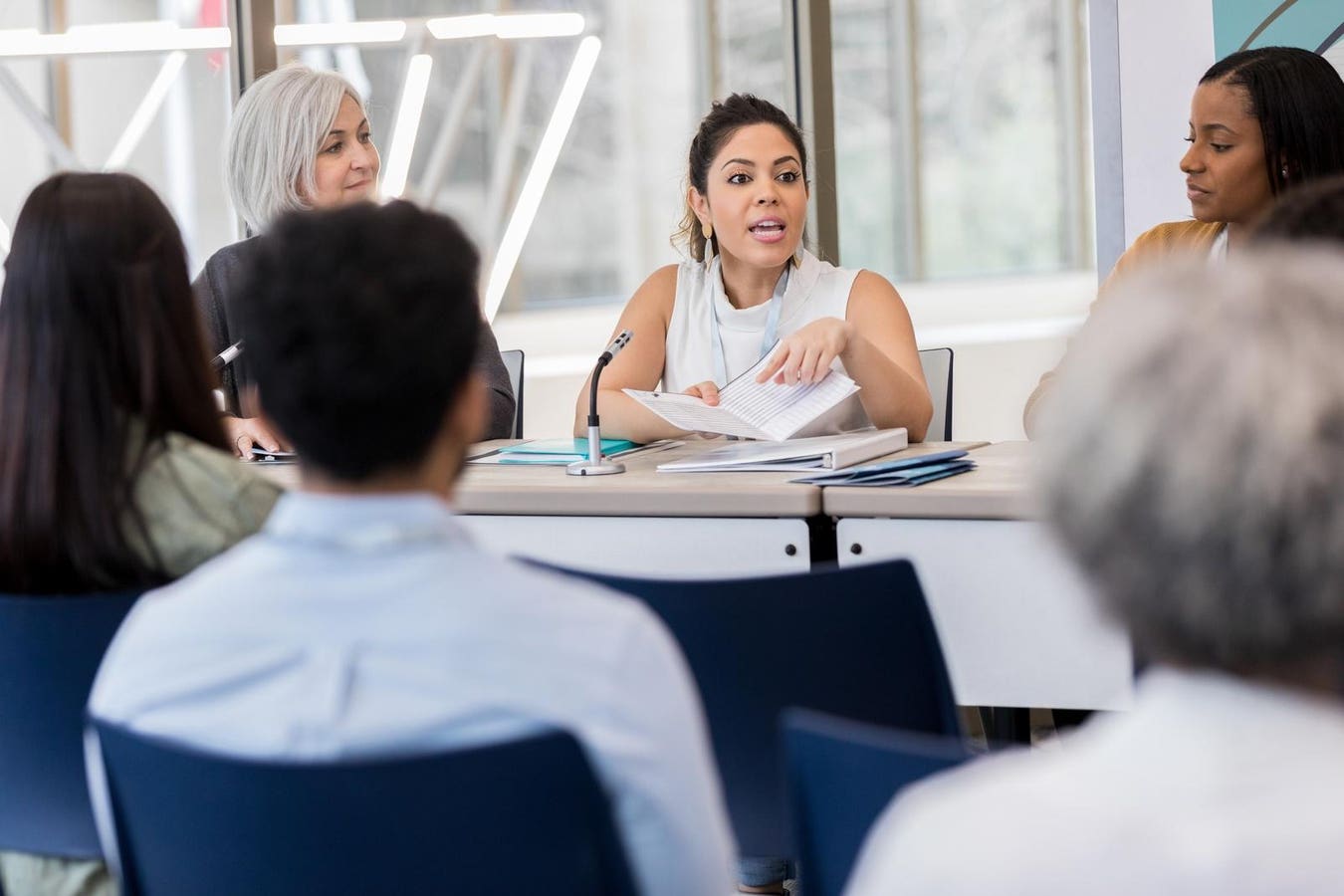Jaime Leverton is CEO of Hut 8 Mining.
For the past two decades, I have regularly agreed to participate in all-women panels. I’ve always considered them an honor, as tremendously valuable opportunities to share my personal experiences and add to the critical conversations around unacceptable low female representation in the technology and broader business worlds.
But earlier this year, after taking part in yet another all-women panel focused on our “experience as women” rather than a discussion focused on our insights, expertise or analysis, I decided it’s time for female leaders to expect better.
Until further notice, I publicly committed on social media to no longer participating in these all-women panels. To help clarify why I’m taking this stance, it’s worth taking a look back.
The Evolution Of All-Women Panels
About a decade ago, there was a much-needed (and frankly, overdue) outcry over the all-male panel that was a mainstay of business and tech conferences. This led to a raised awareness of the urgent need for better gender representation on conference panels that provide women leaders and experts with the greater visibility and leadership positioning we deserve.
Men were encouraged to be allies and refuse to participate in the all-male panel. In response to addressing the visible lack of gender equity, many conference organizers made all-women panels a mandatory part of their programming.
Women were so underrepresented in leadership positions that all-women panels were often the only way to hear from them. These panels tended to follow a similar format in which the female panelists shared their experiences and lessons of success in largely male-dominated professions. At the time, they had real value; all-woman panels created a public platform for and fostered a sense of solidarity among female professionals on a public, visible stage where previously mostly men sat.
However, over time, I’ve noticed the frequency and focus of all-women panels (which are still primarily built around the ladies’ experiences) have started to erode their first and intended goal: to help advance women business leaders.
Here’s why.
The all-women panel is often a convenient out for organizers. Instead of doing the real work and finding ways to bring new voices to the main table, it has become an easy gender diversity checkbox. It can also create a false sense of progress among organizers, speakers and participants that an event or platform is committed to equality.
Focusing on women’s shared experiences unintentionally reinforces the false idea that this is their most valuable contribution, as opposed to their business and sector expertise, leadership acumen or learned insights.
I suggest conference organizers who are serious about promoting gender equality and inclusion focus on creating panels that include a mix of women and men, and those from a variety of backgrounds and perspectives, and then bring them together, toe to toe.
Ultimately, the goal is to foster genuinely additive diversity—inviting new voices to critical conversations and not simply performative—as all-women panels have become. And so, I am inviting other female leaders to join me in respectfully declining offers to participate in panels that are expressly designed for women.
What Organizers Can Do To Help
It’s time to do better. I’d love to hear from other women on their experiences with these panels and how they are feeling about where we are on this issue. And for conference organizers, here are some practical ideas:
• Do the research. A good panel thrives on diverse participants, and those programming and curating the event need to invest the time and effort to identify and find these professionals. LinkedIn industry groups and newsletters can be a terrific way to discover new voices.
• Book speakers beyond the C-suite. Look to invite new names and ask people who might not be on the speaking circuit. Then, support them with the resources and preparatory tools they need to be successful.
• Put the ask out. I’m always surprised by how few organizations or planners use this, and it’s a missed opportunity. Transparently share speaker criteria and use language that is inclusive and open.
• Partner for a pipeline. Reach out to industry and sector organizations committed to driving diversity and inclusion and ask them to share speakers on expert topics and subjects.
Now, if I am invited to participate in a panel that happens to be comprised of women because they are leaders in business and subject matter experts, I will leap at the chance, but I believe purpose-built “Women in [fill in the blank here]” panels have had their moment and run their course. It’s time for us to prioritize women leaders having proper representation across all subjects and speaking opportunities.
Forbes Business Council is the foremost growth and networking organization for business owners and leaders. Do I qualify?
Read the full article here





